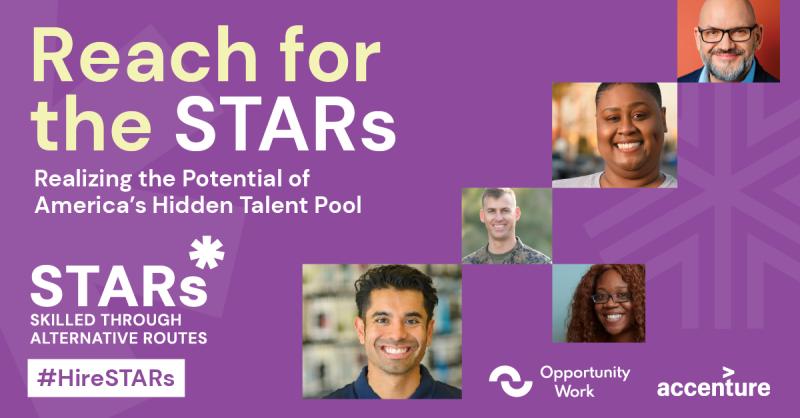
Opportunity@Work and Accenture call on employers to tap into the hidden pool of talent of “Skilled Through Alternative Routes” (STAR) workers
Pisana Ferrari – cApStAn Ambassador to the Global Village
The debate on whether skills training could emerge as a viable and scalable future alternative to college is long standing and heated. There appears to be, however, a mounting consensus that colleges and universities have not come close to keeping up with the skills demanded by employers. Last year, for example, a survey of 750 HR leaders across all industries and company sizes conducted by Northeastern University, US, indicated that over half of the responders were looking at prioritizing skills over degrees. Now a report released by Opportunity@Work, a not-for-profit social enterprise, and the multinational professional services company Accenture, suggests that employers should tap into the hidden pool of talent of the 71 million individuals currently in the US workforce, who do not have college degrees, but still have the skills and experience many employers are looking for. These are what the report defines “Skilled Through Alternative Routes” workers (STARs). According to the report the so-called “skills gap” is part of a much larger problem, the “opportunity gap”, i.e. the loss of income and career opportunity due to unfair barriers that prevent such workers from translating their learning into earning.
STARs account for slightly less than half the working population and are represented in all regions, races, ethnicities, genders and generations across the US. They are engaged problem-solvers with a wide range of skills that are highly prized in dozens of well-paid current and emerging skilled jobs, say the authors. Millions of STARs, they add, develop the foundational and behavioral skills that employers say they need, through their civilian or military work experience. Millions more acquire technical and functional skills in community college, last-mile training programs, or on-the-job. In fact, 5 million STARs work successfully in high-wage roles today, debunking the damaging myth that no degree means no skills. The report contains a number of interesting testimonies from individuals who have created a career without a degree, often in spite of obstacles.
The report’s Call to Action to employers includes the following key points: end four-year degree requirements that prevent them from considering STAR workers; identify and intentionally source from “alternative routes” to find STAR talent; invest in training and open career pathways for the STARs already inside their organization. Unleashing STAR talent could have transformative effects on the economy, say the authors, not only by helping employers to fill open positions required for their businesses, but also by assisting workers to reach their full potential.
See also our blog articles on: “US survey of 750 HR leaders indicates shift towards skills-and competency-based hiring” and “Are apprenticeships going to emerge as a viable and scalable future alternative to college?”
Sources
- Reach for the STARs: “The Potential of America’s Hidden Talent Pool”, published by Opportunity@Work and Accenture, March 2020
- “College degree required? You may be overlooking a hidden pool of skilled workers”, Katie Kuehner-Hebert, BenefitsPro Magazine, March 16, 2020
Read more: Opportunity@Work
Photo credit : Cover of “Reach for the STARs” report by Opportunity@Work and Accenture, March 2020